Management of Wastes
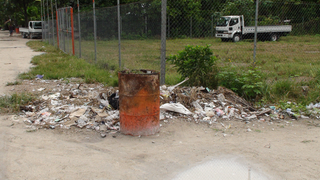
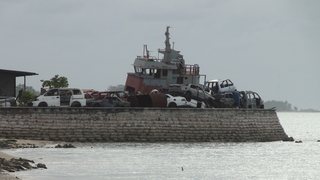
Rubbish
There appears to be rubbish all over South Tarawa
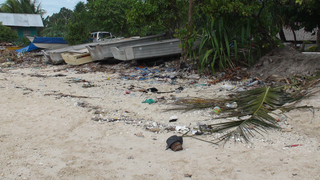
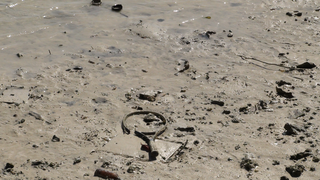
Lagoon
It is also accumulating in the lagoon
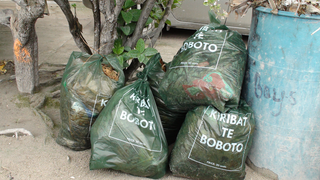
Green Bags
Biodegradable plastic bags for household garbage
Poor waste management is one of the major environmental problems in Kiribati, particularly on South Tarawa.
It poses a serious threat to health, erodes the economy, affects future development and is a deterrent to tourism.
Rubbish pollutes public areas and may leach into the fresh water supply which is already very limited.
The Ministry of Environment, Lands and Agriculture Development (MELAD) has identified waste management and pollution control as one of the core environmental issues in Kiribati.
On South Tarawa many people have no choice but to live in sub-standard, unhealthy and crowded conditions in part because of the large amount of rubbish and pollutants.
Traditionally households swept all their mixed waste into communal piles in the street for collection by the Council. Council collection was often infrequent and inefficient and resulted in open, uncontained, piles of rubbish which became a standard fixture in the community.
Compounding this waste management issue are the many chickens, dogs and pigs that forage amongst the rubbish and around the houses.
Over many years machinery, vehicles, household goods, office equipment, batteries, chemicals, bottles, cans, plastics and the like have been imported into Kiribati.
- economic and urbanization growth
- limited availability of suitable land for landfills which is exacerbated by customary land tenure
- remoteness resulting in high costs for returning recyclable wastes items and in turn making recycling operations unviable
- lack of legislation/national policy that deals with the importation of non-environmentally friendly products
- illegally dumping mixed waste along foreshore areas
With time, some waste has decayed but most has not and is polluting the environment.
- establishment of new systems for rubbish collection
- construction of new landfills and rehabilitate existing landfills
- introduction of garbage sorting by the Councils
- use of biodegradable plastic bags for household garbage ("green bags")
- establishment of a recycling facility
- removal of persistent organic pollutants
- community education activities
- island-wide clean-up campaigns
- promotion of household recycling of organic wastes
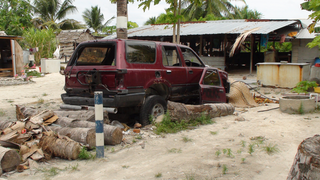
Wrecked Cars
Wrecked cars litter yards and roadsides

Wrecked Cars
They are an eyesore
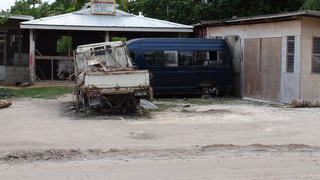
Wrecked Cars
They are dangerous

Dump
Nobody monitors what is being dumped
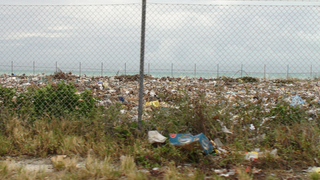
Dump
Next to the lagoon - easy to contaminate the water
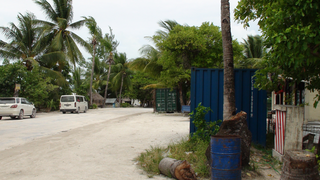
Shipping Containers
Shipping containers are left all over the place and are unsightly
